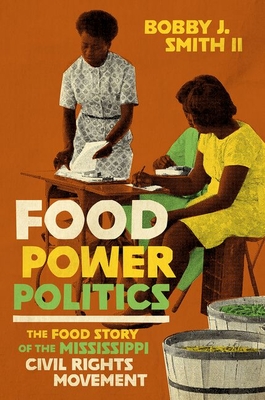
Smith II, Bobby J.
product information
description
ed deep within the soil of American civil rights history. Drawing on archival research, interviews, and oral histories, Bobby J. Smith II re-examines the Mississippi civil rights movement as a period when activists expanded the meaning of civil rights to address food as integral to sociopolitical and economic conditions. For decades, white economic and political actors used food as a weapon against Black sharecropping communities in the Yazoo-Mississippi Delta, but members of these communities collaborated with activists to transform food into a tool of resistance. Today, Black youth are building a food justice movement in the Delta to continue this story, grappling with inequalities that continue to shape their lives.
Drawing on multiple disciplines including critical food studies, Black studies, history, sociology, and southern studies, Smith makes critical connections between civil rights activism and present-day food justice activism in Black communities, revealing how power struggles over food empower them to envision Black food futures in which communities have the full autonomy and capacity to imagine, design, create, and sustain a self-sufficient local food system.
Drawing on multiple disciplines including critical food studies, Black studies, history, sociology, and southern studies, Smith makes critical connections between civil rights activism and present-day food justice activism in Black communities, revealing how power struggles over food empower them to envision Black food futures in which communities have the full autonomy and capacity to imagine, design, create, and sustain a self-sufficient local food system.
member goods
No member items were found under this heading.
listens & views

SUPERSTARS HIT PARADE 2&3 / ...
by SUPERSTARS HIT PARADE 2AND3 / VARIOUS
COMPACT DISCout of stock
$16.49
Return Policy
All sales are final
Shipping
No special shipping considerations available.
Shipping fees determined at checkout.






